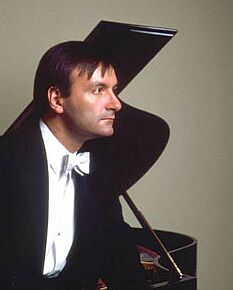Two memorable concerts in the spring

January 27, 2006 AT 7:30 P.M.
Perelman Theater, Kimmel center
Natalia Gutman, Cello
Slava Moroz, Violin
Dmitri Shteinberg, Piano
Program:
Johann Sebastian Bach: Suite for Cello solo No. 3 in C major, BWV 1009
Johannes Brahms: Trio No.3 in C minor, Op. 101
Franz Schubert: Sonata in A minor, D. 821, ''Arpeggione''
Dmitri Shostakovich: Piano Trio No. 2 in E minor, Op. 67
Notes: Russian musicians rock! All three members in the group are from Russia. Studying for thirteen years with Galina Kosolupova in Moscow conservatory, since she was young acclaimed Russian cellist Natalia Gutman worked with Mstislav Rostropovich and Sviatoslav Richter, and her later husband, the great violinist Oleg Kagan. Richter called Gutman "an incarnation of truthfulness in music."
In the concert, the openning of Bach is a little bit plain to me, although other two friends applauded it was richly overlaid and colorful. The highlights to me were the two piano trios. In Brahms's No.3, the speedy and high-pitched start of Moroz's violin is shocking and explosive, quickly captivated my ears. As a NYT critic wrote, "Mr. Moroz is a wiry, muscular player with a quick, edgy vibrato and a huge Slavic tone". The collaboration between the cello and the violin was very convincing, although the piano was relatively a little weak. In the begining of the Shostakovich's Trio, it was a very slow and low-pitched lyric style cello solo, like in a childhood memory, then it turns gradually into rhythmic marching by strings plucking ("Pizzicato"?) and explicably strong emotional eruption. This process is repeated in variational forms.

April 27, 2006, AT 8 P.M
Verizon Hall, Kimmel Center
The Philadelphia Orchestra
Osmo Vänskä, conductor
Stephen Hough, piano
Program:
RAUTAVAARA Cantus Arcticus (Concerto for Birds and Orchestra)
RACHMANINOFF Rhapsody on a Theme of Paganini
SIBELIUS Symphony No. 6
Notes: This concert is named "Northern Lights", because the conductor Osmo Vänskä is from Finland, and all three selected music pieces are related to this north European country. It is said that Rachmaninoff composed the rhapsody in Finland. Honestly we were not interested in Finland too much, but Rachmaninoff gave us enough reason to go. Stephen Hough's hands were swifty, and luckily we could see his hands flying on the keyboard from our seats. It seems easy to tell good music. Although I can't say Sibelius's symphony and the other Finnish composer's modern concerto are ordinary, obviously Rachmaninoff's rhapsody was too splendid in the evening and overshadowed the other two pieces. At least I could tell the orchestra was not very much involved when they played the Finnish concerto. "good music is both personal and universal". The theme of the 24 Paganini solo violin caprice is very interesting and there are many variations by a number of composers. In this Rachmaninoff's Rhapsody, the theme of Paganini is embodied of the characteristic grand but subtle Russian sentiment. Stephen Hough exactly interpreted such Russian sentiment. It was electrifying.
